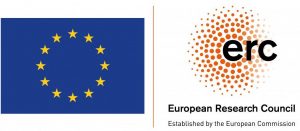
The two announcements: the first week of the Polish election campaign (8-15 August 2023)
Written by Filip Bialy
The first week of the parliamentary campaign in Poland was dominated by the governing Law and Justice. President Andrzej Duda, an ex-member of the party and, most of the time, a reliable ally, announced – through his social media channels – the date of the election on the 15th of October. Immediately afterwards the party’s leader Jarosław Kaczyński set the tone of the campaign by announcing a referendum that would be held on the same day. The opposition parties found themselves in reactive mode, unable to recapture the political narrative.
The 15th of October is the earliest from the range of possible election dates. And it is not a random choice: it is the Papal Day that commemorates the election of the Polish cardinal Karol Wojtyła as a pope John Paul II on 16 October 1978. Conservatives must believe the significance of the day will help attracting the more religious and nationalistic part of the electorate to voting booths.
The referendum seems to be an even more ingenious tool of political mobilisation. Kaczyński proposed it first several weeks ago, claiming it will focus on the EU migrant relocation mechanism. But as it turned out over the long weekend – extended by the 15th of August’s Armed Forces Day (a commemoration of the Polish victory over Soviet Russian forces in the battle of Warsaw in 1920) – only one of the four questions is about the EU scheme. The questions, suspensefully unveiled each day by a different members of the party, are:
- Do you support selling the state-owned companies?
- Do you support increasing the retirement age that is now 60 for women and 65 for men?
- Do you support the admission of thousands of illegal migrants from the Middle East and Africa in accordance with the compulsory relocation mechanism imposed by the European bureaucracy?
- Do you support removing the barrier at the border between Poland and Belarus?
The media reports say that Law and Justice selected the four questions from the list of twelve, based on the internal polls. The questions that were eventually presented are those that got the most positive reaction from respondents that are the opposition supporters. The referendum is thus perceived as a move to appeal to that part of the electorate.
It is worth noting that the first question, about privatisation, resonates not only with the older generations that negatively experienced the economic transformation of the early 1990s, but also with their children, now in their 40s and 50s. The second question is a reminder of the fact that Civic Coalition government increased the retirement age – the decision that Law and Justice reversed after its electoral victory in 2015.
The third and fourth questions are at the same time about the migrants and national security in the context of the war in the Ukraine. With new war-related incidents at the Polish border every other week – arguably intended by Russia to impact the political climate during the campaign in Poland – and recent unrests in France, the immigrants and refugees are used to underline the importance of maintaining security, with Law and Justice government being a guarantor of the firm approach. That is probably one reason that the response from the opposition did not get much traction. The Left’s Robert Biedroń asked the European Commission whether Poland would be forced to participate in the relocation mechanism. The response which Biedroń presented to the media was that Poland could ask to be excluded from the scheme because of the fact it has already accepted large numbers of refugees from the Ukraine.
The referendum has yet another aim: it is to allow the government to promote its agenda outside of the parliamentary campaign regulations set by the Electoral Code. Referendums in Poland are regulated by a separate act which means the money spent on the referendum campaign will not be limited by the Electoral Code rules.
As for the opposition, the three main blocks – Civic Coalition, Third Way, and the Left – have already registered separate election committees. It means they will present separate lists of candidates, dividing the votes in a way that, according to some experts, may limit the chances to remove Law and Justice from power. Others claim that the Civic Coalition’s internal polls suggest the coalition’s support in the official surveys is underappreciated and the victory over Law and Justice is certain.
Both the ultimate list of election committees and the referendum are still uncertain. The parties may still register a united list and the referendum has yet to be confirmed by Sejm, the lower chamber of the Polish parliament. In the case of the united opposition list, the decision will have to be made by the 28 August which is the electoral committees registration deadline. The referendum will most probably be approved by the parliament later this week.
The views and perspectives expressed in this post are solely those of the author.



0 Comments